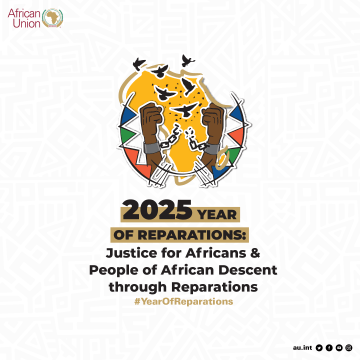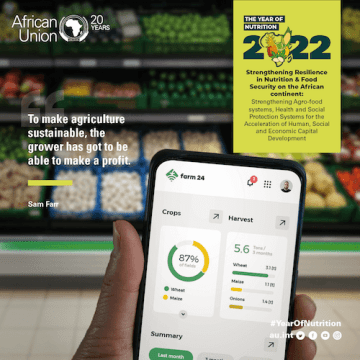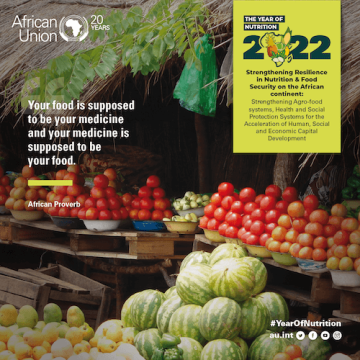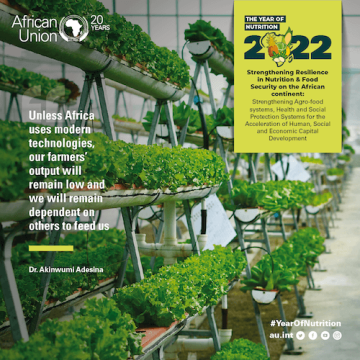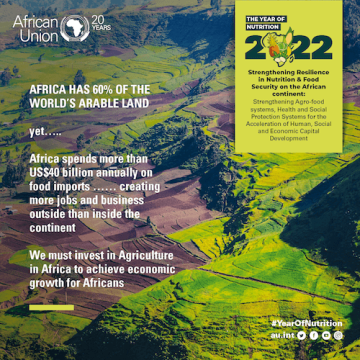(EXTENSION)
6TH AFRICAN GOVERNANCE SEMINAR
CALL FOR PAPERS
Submission of abstracts due date (EXTENSION): 30 August 2025
Submission of full draft papers due date (EXTENSION): 20 September 2025
Introduction
The African Peer Review Mechanism (APRM) Continental Secretariat, a specialised institution of the African Union (AU), invites African experts, scholars, and practitioners to submit abstracts for consideration. We are inviting submissions from:
- Doctoral candidates,
- Post-doctoral researchers,
- Policy research fellows, and
- Governance experts and practitioners on the theme of “Securing Africa’s Financial Future through Effective Economic Governance and Management”.
Selected papers will be presented by the authors at the 6th African Governance Seminar Series (AGOSS), to be held in Kigali, Rwanda, in October 2025. Papers that meet academic and editorial standards will be published.
The African Governance Seminar Series is an initiative of the APRM that seeks to critically assess mainstream governance ideologies and policy frameworks about Africa’s unique political economy and development context.
The African Governance Seminar Series is a multi-stakeholder platform designed to facilitate dialogue, debate, and analysis of governance developments and trends across Africa. The series brings together governance experts, practitioners, business leaders, and academics from universities, higher learning institutions, centres of excellence, and schools of government throughout Africa. Seminar themes include democracy and political governance, economic governance and management, corporate governance, socio-economic development, and state resilience, all within the framework of the AU Constitutive Act, the African Charter on Democracy, Elections and Governance (ACDEG), and the AU Agenda 2063.
The seminar’s core objective is to generate and disseminate knowledge on innovative approaches to governance theory and practice, reviewing emerging literature and assessing trends through the consolidation and analysis of reports from within and outside the continent. Participants become part of a distinguished network of African governance specialists who interact via an online platform and through events across the continent.
Background
Established by the AU Assembly of Heads of State and Government in 2003, the APRM is the African Union Member States’ voluntary self-assessment and peer review mechanism aimed at promoting good governance. AU Member States that accede to the APRM commit to its review processes and the implementation of National Programmes of Action based on review findings. The mechanism encourages the adoption of AU norms and standards to strengthen constitutionalism, policy formulation, domestication, and implementation.
To advance synergy between academia and practitioners, shaping governance discourse and best practices, the APRM promotes collaboration among diverse stakeholders in the governance ecosystem.
The Seminar
AGOSS was created as a collaborative platform to engage multiple stakeholders, including academics, practitioners, and non-state actors from both public and private sectors, in dialogue on governance in Africa. Its purpose is to bridge the gap between theory and practice and to align academic discourse with real-world governance challenges, thereby fostering a continental consensus on shared values, standards, and norms.
Call for Papers
The 2025 African Governance Seminar Series (AGOSS) invites original contributions from authors to address one or more of the sub-themes outlined below.
AGOSS 2025 Theme
Main Theme: Securing Africa’s Financial Future through Effective Economic Governance and Management
As African countries continue to deepen financial integration, reduce their reliance on external credit narratives, and strengthen domestic monetary systems, the need to assert control over the continent’s credit rating architecture has never been more urgent. Financial sovereignty is not just about access to capital; it also depends on the fairness, transparency, and accuracy of how that access is assessed and priced.
The 6th African Governance Seminar will focus this year’s discussions on the evolving role of credit rating systems in Africa’s pursuit of financial self-determination. The event will explore the construction of creditworthiness, the entities that control the narrative, and the institutional innovations necessary to help African states reshape global perceptions of their risk and resilience.
This year's seminar invites papers and policy proposals aimed at developing a coordinated agenda for strengthening Africa’s credit rating capacity. This agenda should be anchored in robust domestic institutions, continental cooperation, and home-grown data systems. The overarching objective is to reimagine financial sovereignty through the lens of credit ratings, focusing not only on how African countries are assessed but also on their ability to control that assessment.
Sub-Themes
Sub-theme One: The Africa Credit Rating Agency andthe Role and Impact of International Credit Rating Agencies on Africa’s Financial Autonomy
This sub-theme delves into the influence of international credit rating agencies (CRAs) on Africa’s borrowing costs, investor confidence, and policy sovereignty. Contributors are invited to critically examine the methodologies, biases, and market consequences of these ratings. The emphasis will be on exploring how African countries can reduce their dependence on external CRAs by building a home-grown credit rating institution, strengthening national creditworthiness data, and advocating for more transparent, inclusive global credit assessment frameworks.
Sub-theme Two: Building Resilient Local Credit Systems and Currency Independence
This sub-theme seeks contributions on how to strengthen local financial systems to build trust in domestic debt markets. Key areas of focus include the development of independent central banks, stable and credible monetary policies, and robust sovereign credit data infrastructures. Papers should explore how factors like currency volatility, credit risk premiums, and institutional weaknesses affect local credit ratings, while also proposing strategies to mitigate these risks within a sovereign framework.
Sub-theme Three: Mobilising Domestic Capital for Development
This sub-theme examines how to develop domestic capital markets that can support stronger sovereign credit ratings by addressing fiscal vulnerabilities, enhancing investor confidence, and reinforcing financial resilience. By focusing on internal sources of finance, such as pension funds, insurance reserves, diaspora remittances, and domestic bond markets. African governments can enhance debt sustainability and reduce vulnerability to external shocks or adverse credit downgrades. Key questions include how domestic revenue strategies influence sovereign ratings, the role of institutional investors in financing infrastructure, and the development of deep, liquid capital markets that appeal to both local and international investors. The sub-theme also explores how innovative financing instruments, such as green bonds, sukuk, and diaspora bonds, can contribute to development while strengthening credit metrics. Additionally, it examines the governance, regulatory, and transparency reforms necessary to establish trust and mitigate perceived credit risk in the deployment of domestic capital.
Sub-theme Four: Harnessing AfCFTA and Regional Cooperation to Support Credit Resilience and Economic Sovereignty
This sub-theme will explore the role of regional integration, especially the African Continental Free Trade Area (AfCFTA), in enhancing Africa’s collective credit resilience. Authors are encouraged to submit papers that examine how harmonised regulatory standards, cross-border investment protocols, and regional rating institutions can improve the continent’s financial reputation, attract long-term capital, and foster intra-African trade through improved creditworthiness.
Submission Process
Authors wishing to participate in the seminar are invited to submit abstracts no later than 30 August 2025 (EXTENDED).
- Abstracts should be between 300 to 500 words.
- The first page of the proposed paper should include the title, authors’ names, affiliations, and full contact details.
- Authors should also submit biographies, listing previously authored and/or published papers.
- Upon submission of the abstract, authors will be notified of the outcome. If selected, they will receive further details regarding the submission process and seminar logistics.
- Full draft papers must be submitted by 5 September 2025 via e-mail in both PDF and Word format to: ags@aprm-au.org.
- The final paper submissions should be between 2,500 to 5,000 words, excluding references, figures, tables, and appendices.
Note: Papers must be original and must not have been published, accepted for publication, or under consideration for publication elsewhere.
DOWNLOAD PDF: (EXTENSION) 6TH AFRICAN GOVERNANCE SEMINAR - CALL FOR PAPERS
6ème SEMINAIRE SUR LA GOUVERNANCE AFRICAINE
APPEL ÀSOUMISSION D’ARTICLES DE RECHERCHE
Date de soumission des résumés prolongée jusqu’au 30 août 2025
Date de soumission des articles de recherche prolongée jusqu’au 20 septembre 2025
- Introduction
Le secrétariat continental du mécanisme africain d’évaluation par les pairs (MAEP), institution spécialisée de l’Union africaine (UA), invite les experts africains, chercheurs et praticiens à soumettre des résumés de leurs articles de recherche. Les soumissions des catégories de personnes suivantes sur le thème «garantir l’avenir financier africain à travers une gouvernance et gestion économiques efficaces» sont encouragées :
- Candidats au doctorat,
- Chercheurs post-doctorat
- Agrégé de recherche de politique et
- Experts en gouvernance et praticiens
Les articles de recherche sélectionnés seront présentés par leurs auteurs à la 6ème série du séminaire sur la gouvernance en Afrique(AGOSS), qui se tiendra à Kigali, au Rwanda, en octobre 2025. Les articles de recherche répondant aux standards académiques et éditoriaux seront publiés.
La série du séminaire sur la gouvernance en Afrique est une initiative du MAEP visant à analyser de manière critique les courants de pensée sur la gouvernance traditionnels ainsi que les cadres de politique sur le caractère unique de l’économie politique africaine et le contexte de son développement.
La série du séminaire sur la gouvernance en Afrique est une plateforme rassemblant plusieurs parties prenantes et conçue pour promouvoir le dialogue, le débat d’idées et l’analyse de développements et tendances dans le domaine de la gouvernance. La série rassemble des experts en gouvernance, des praticiens, des chefs d’entreprise et des professeurs d’universités, d’instituts de troisième cycle, de centres d’excellence et d’écoles d’administration à travers l’Afrique.
Les thèmes du séminaire comprennent la démocratie et la gouvernance politique, la gouvernance et la gestion économique, la gouvernance d’entreprise, le développement socio-économique et la résilience étatique qui sont tous régis par l’acte constitutif de l’UA, la charte africaine sur la démocratie, les élections et la gouvernance (CADEG) et l’Agenda 2063 de l’UA.
L'objectif principal du séminaire est de créer et diffuser du savoir sur les approches innovantes en matière de théorie et de pratique de la gouvernance en effectuant des revues de littérature récente et évaluant des tendances a travers la consolidation et l’analyse des rapports aussi bien sur le continent qu’en dehors. Les participants intègreront un illustre réseau de spécialistes de la gouvernance africaine qui interagissent aussi bien sur une plateforme virtuelle que lors d’évènements à travers le continent.
- Contexte
Crée par la Conférence des Chefs d’état et de gouvernement de l’UA en 2003, le MAEP est un mécanisme d’auto-évaluation volontaire des états membres de l’Union africaine promouvant la bonne gouvernance. Les états-membres de l’UA qui adhèrent au MAEP s’engagent à des processus d’évaluations et à la mise en œuvre de Programmes nationaux d’action basés sur les conclusions des évaluations. Le mécanisme encourage l’adoption de normes et standards de l’UA visant à renforcer le constitutionnalisme, la formulation de politiques cohérentes, l’appropriation et la mise en œuvre.
Afin de promouvoir la synergie entre le monde de la recherche et les praticiens, façonner le discours de la gouvernance et les bonnes pratiques, le MAEP promouvoit la collaboration entre diverses parties prenantes dans le domaine de la gouvernance.
- Le séminaire
AGOSS a été lancé afin de servir de plateforme collaborative pour promouvoir le dialogue sur la gouvernance en Afrique entre différentes parties prenantes, y compris les professeurs d’université, praticiens et acteurs non-étatiques des secteur public et privé. Il a pour mission de servir de passerelle entre la théorie et la pratique et d’articuler le discours académique de sorte à relever les défis réels de la gouvernance, et ce faisant, promouvoir le consensus à l’échelle du continent sur les valeurs, standards et normes communs.
- Appel àsoumissions
L’édition 2025 de la série du séminaire sur la gouvernance en Afrique (AGOSS) encourage les chercheurs à soumettre des articles sur un ou plusieurs des thèmes mentionnés ci-dessous.
- Thème 2025 d’AGOSS
5.1 Thème principal: Garantir l’avenir financier africain à travers une gouvernance et gestion économiques efficaces
Alors que les pays africains continuent à poursuivre leur intégration financière, réduire leur dépendance aux narratifs de notation externes et renforcer leurs systèmes monétaires nationaux, le besoin d’assurer le contrôle de l’architecture des nations souveraines n’a jamais été aussi pressant. La souveraineté financière transcende le seul accès aux capitaux. Il dépend de la justesse, de la transparence et de l’exactitude de la manière dont cet accès est évalué et chiffré.
Le 6ème séminaire sur la gouvernance en Afrique portera sur le rôle en mutation des systèmes de notation de crédit dans la quête d’auto-détermination financière de l’Afrique. Cet évènement réfléchira à la construction de la solvabilité, les entités qui façonnent le narratif et les innovations institutionnelles nécessaires pour aider les états africains à changer les perceptions mondiales de leur risque et résilience.
Le séminaire de cette année encourage les chercheurs à soumettre des articles et des propositions de politique visant à formuler un agenda coordonné pour renforcer la capacité africaine en matière de notations de crédit. Cet agenda doit être ancré dans des institutions nationales fortes, la coopération continentale et des systèmes de données locaux. L’objectif premier est de réimaginer la souveraineté financière à travers le prisme des notations souveraines en se focalisant non seulement sur la manière dont les pays africains sont notés mais aussi sur leur capacité à influer sur le processus de notation.
- Sous-thèmes
Sous-thème un: L’Agence africaine de notation de crédit et le rôle et l’impact des agences internationales de notation de crédit sur l’autonomie financière africaine
Ce sous-thème analysera l’influence des agences internationales de notation de crédit sur les coûts d’emprunt, la confiance des investisseurs et la souveraineté des politiques. Les auteurs sont priés d’évaluer de manière critique les méthodologies, les préjugés et les conséquences sur les marchés de ces notations. L’accent sera mis sur les moyens de limiter la dépendance des pays africains aux agences de notation de crédit en bâtissant une institution de notation de crédit africaine, en renforçant les données liées à la solvabilité et en plaidant pour des cadres d’évaluation de crédit mondiaux plus transparents et inclusifs.
Sous-thème deux : Bâtir des systèmes locaux et résilients de crédit et indépendance de la monnaie
Ce sous-thème sollicite des articles sur le renforcement des systèmes financiers locaux pour augmenter la confiance dans les marchés d’emprunt locaux. L’accent sera mis, entre autres, sur la création de banques centrales indépendantes, des politiques monétaires stables et crédibles et une infrastructure forte et souveraine de données de crédit. Les articles devront analyser des facteurs tels que la volatilité de la monnaie, les primes de risque de crédit et les faiblesses institutionnelles affectant les notations de crédit locales tout en proposant des stratégies pour pallier ces risques dans un cadre souverain.
Sous-thème trois: Mobiliser le capital local pour le développement
Ce sous-thème porte sur les marchés de capitaux locaux à même de soutenir les notations de crédit souveraines en s’attaquant aux faiblesses fiscales, en améliorant la confiance des investisseurs, et en renforçant la résilience financière. En se focalisant sur les sources internes de financement tels que les fonds de pension, les réserves d’assurance-dépôt, les transferts de fonds de la diaspora et les marches obligataires locaux, les gouvernements africains peuvent améliorer la viabilité de leur dette et réduire leur vulnérabilité aux chocs externes ou une révision à la baisse de leur notation de crédit. Parmi les questions fondamentales se posant, comment les stratégies de revenu locales influencent les notations souveraines ? Quel est le rôle des investisseurs institutionnels dans l’infrastructure financière et le développement de marchés liquides et profonds qui répondent aux exigences des investisseurs locaux et internationaux ? Ce sous-thème portera également sur la manière dont les instruments financiers innovants tels que les émissions obligataires vertes, celles dites «sukuk» et «diaspora» peuvent contribuer aux efforts de développement en renforçant les indicateurs de crédit. De plus, le sous-thème analysera les réformes de gouvernance, de régulation et de transparence nécessaires à la mise en confiance et la réduction de la perception du risque de crédit dans le déploiement du capital local.
Sous-thème quatre: Exploiter la ZLECAF et la coopération régionale pour sous-tendre la résilience du crédit et la souveraineté économique
Ce sous-thème analysera le rôle de l’intégration régionale, notamment la zone de libre-échange continentale africaine (ZLECAF), dans l’amélioration de la résilience africaine collective. Les chercheurs sont priés de soumettre des articles analysant la manière dont les standards de régulation harmonisés, les protocoles d’investissements transfrontaliers et les institutions de notation régionales peuvent améliorer la réputation financière du continent, attirer des capitaux à long-terme et promouvoir le commerce intra-africain à travers une solvabilité renforcée.
- Processus de soumission
Les chercheurs souhaitant participer au séminaire sont priés de soumettre leurs résumés au plus tard le 30 août2025 (date prolongée).
- Les résumés doivent être d’une longueur de 300 à 500 mots.
- La première page de la soumission doit comporter le titre, le nom de l’auteur, son affiliation, ainsi que ses coordonnées complètes.
- Les auteurs sont également priés de soumettre leur biographie en listant les articles rédigés et/ou publiés auparavant.
- Après soumission de leurs résumés, les auteurs seront notifiés du résultat. Si leurs soumissions sont admises, ils recevront des détails concernant le processus de soumission et les dispositions logistiques relatives au séminaire.
- Les articles complets doivent être soumis d’ici au 5 septembre 2025 par courriel en formats PDF et Word à l’adresse courriel suivante : ags@aprm-au.org.
- Les soumissions d’articles finales doivent être d’une longueur de 2500 à 5000 mots hormis les références, chiffres, tableaux et annexes.
NB: Les articles doivent être originaux et ne jamais avoir été publiés, acceptés pour publication ou en train d’etre évalués aux fins de publication, ou que ce soit.
6TH AFRICAN GOVERNANCE SEMINAR
CALL FOR PAPERS
Submission of abstracts due date: 04 August 2025
Submission of full draft papers due date: 05 September 2025
- Introduction
The African Peer Review Mechanism (APRM) Continental Secretariat, a specialised institution of the African Union (AU), invites African experts, scholars, and practitioners to submit abstracts for consideration. We are inviting submissions from:
- Doctoral candidates,
- Post-doctoral researchers,
- Policy research fellows, and
- Governance experts and practitioners on the theme of “Securing Africa’s Financial Future through Effective Economic Governance and Management”.
Selected papers will be presented by the authors at the 6th African Governance Seminar Series (AGOSS), to be held in Kigali, Rwanda, from 11 to 12 September 2025. Papers that meet academic and editorial standards will be published.
The African Governance Seminar Series is an initiative of the APRM that seeks to critically assess mainstream governance ideologies and policy frameworks about Africa’s unique political economy and development context.
The African Governance Seminar Series is a multi-stakeholder platform designed to facilitate dialogue, debate, and analysis of governance developments and trends across Africa. The series brings together governance experts, practitioners, business leaders, and academics from universities, higher learning institutions, centres of excellence, and schools of government throughout Africa. Seminar themes include democracy and political governance, economic governance and management, corporate governance, socio-economic development, and state resilience, all within the framework of the AU Constitutive Act, the African Charter on Democracy, Elections and Governance (ACDEG), and the AU Agenda 2063.
The seminar’s core objective is to generate and disseminate knowledge on innovative approaches to governance theory and practice, reviewing emerging literature and assessing trends through the consolidation and analysis of reports from within and outside the continent. Participants become part of a distinguished network of African governance specialists who interact via an online platform and through events across the continent.
- Background
Established by the AU Assembly of Heads of State and Government in 2003, the APRM is the African Union Member States’ voluntary self-assessment and peer review mechanism aimed at promoting good governance. AU Member States that accede to the APRM commit to its review processes and the implementation of National Programmes of Action based on review findings. The mechanism encourages the adoption of AU norms and standards to strengthen constitutionalism, policy formulation, domestication, and implementation.
To advance synergy between academia and practitioners, shaping governance discourse and best practices, the APRM promotes collaboration among diverse stakeholders in the governance ecosystem.
- The Seminar
AGOSS was created as a collaborative platform to engage multiple stakeholders, including academics, practitioners, and non-state actors from both public and private sectors, in dialogue on governance in Africa. Its purpose is to bridge the gap between theory and practice and to align academic discourse with real-world governance challenges, thereby fostering a continental consensus on shared values, standards, and norms.
- Call for Papers
The 2025 African Governance Seminar Series (AGOSS) invites original contributions from authors to address one or more of the sub-themes outlined below.
- AGOSS 2025 Theme
5.1 Main Theme: Securing Africa’s Financial Future through Effective Economic Governance and Management
As African countries continue to deepen financial integration, reduce their reliance on external credit narratives, and strengthen domestic monetary systems, the need to assert control over the continent’s credit rating architecture has never been more urgent. Financial sovereignty is not just about access to capital; it also depends on the fairness, transparency, and accuracy of how that access is assessed and priced.
The 6th African Governance Seminar will focus this year’s discussions on the evolving role of credit rating systems in Africa’s pursuit of financial self-determination. The event will explore the construction of creditworthiness, the entities that control the narrative, and the institutional innovations necessary to help African states reshape global perceptions of their risk and resilience.
This year's seminar invites papers and policy proposals aimed at developing a coordinated agenda for strengthening Africa’s credit rating capacity. This agenda should be anchored in robust domestic institutions, continental cooperation, and home-grown data systems. The overarching objective is to reimagine financial sovereignty through the lens of credit ratings, focusing not only on how African countries are assessed but also on their ability to control that assessment.
- Sub-Themes
Sub-theme One: The Africa Credit Rating Agency andthe Role and Impact of International Credit Rating Agencies on Africa’s Financial Autonomy
This sub-theme delves into the influence of international credit rating agencies (CRAs) on Africa’s borrowing costs, investor confidence, and policy sovereignty. Contributors are invited to critically examine the methodologies, biases, and market consequences of these ratings. The emphasis will be on exploring how African countries can reduce their dependence on external CRAs by building a home-grown credit rating institution, strengthening national creditworthiness data, and advocating for more transparent, inclusive global credit assessment frameworks.
Sub-theme Two: Building Resilient Local Credit Systems and Currency Independence
This sub-theme seeks contributions on how to strengthen local financial systems to build trust in domestic debt markets. Key areas of focus include the development of independent central banks, stable and credible monetary policies, and robust sovereign credit data infrastructures. Papers should explore how factors like currency volatility, credit risk premiums, and institutional weaknesses affect local credit ratings, while also proposing strategies to mitigate these risks within a sovereign framework.
Sub-theme Three: Mobilising Domestic Capital for Development
This sub-theme examines how to develop domestic capital markets that can support stronger sovereign credit ratings by addressing fiscal vulnerabilities, enhancing investor confidence, and reinforcing financial resilience. By focusing on internal sources of finance, such as pension funds, insurance reserves, diaspora remittances, and domestic bond markets. African governments can enhance debt sustainability and reduce vulnerability to external shocks or adverse credit downgrades. Key questions include how domestic revenue strategies influence sovereign ratings, the role of institutional investors in financing infrastructure, and the development of deep, liquid capital markets that appeal to both local and international investors. The sub-theme also explores how innovative financing instruments, such as green bonds, sukuk, and diaspora bonds, can contribute to development while strengthening credit metrics. Additionally, it examines the governance, regulatory, and transparency reforms necessary to establish trust and mitigate perceived credit risk in the deployment of domestic capital.
Sub-theme Four: Harnessing AfCFTA and Regional Cooperation to Support Credit Resilience and Economic Sovereignty
This sub-theme will explore the role of regional integration, especially the African Continental Free Trade Area (AfCFTA), in enhancing Africa’s collective credit resilience. Authors are encouraged to submit papers that examine how harmonised regulatory standards, cross-border investment protocols, and regional rating institutions can improve the continent’s financial reputation, attract long-term capital, and foster intra-African trade through improved creditworthiness.
- Submission Process
Authors wishing to participate in the seminar are invited to submit abstracts no later than 4 August 2025
- Abstracts should be between 300 to 500 words.
- The first page of the proposed paper should include the title, authors’ names, affiliations, and full contact details.
- Authors should also submit biographies, listing previously authored and/or published papers.
- Upon submission of the abstract, authors will be notified of the outcome. If selected, they will receive further details regarding the submission process and seminar logistics.
- Full draft papers must be submitted by 5 September 2025 via e-mail in both PDF and Word format to: ags@aprm-au.org.
- The final paper submissions should be between 2,500 to 5,000 words, excluding references, figures, tables, and appendices.
Note: Papers must be original and must not have been published, accepted for publication, or under consideration for publication elsewhere.
DOWNLOAD PDF: CALL FOR PAPERS - 6TH AFRICAN GOVERNANCE SEMINAR




